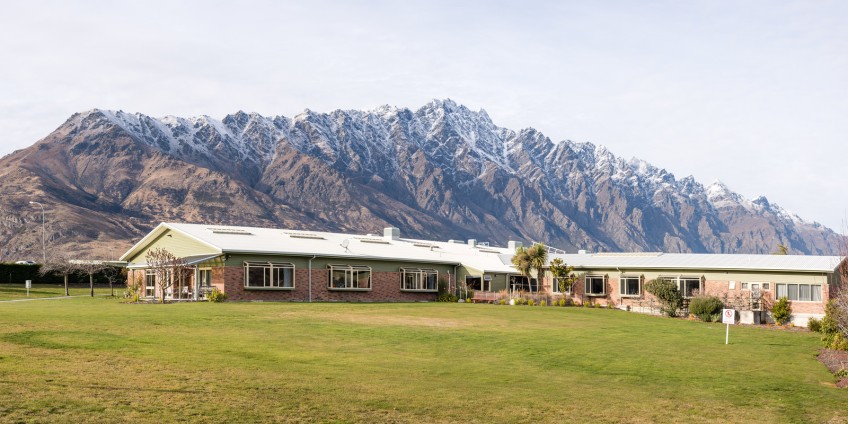
SDHB Q'town public session seen as waste of time
People are being urged not to turn a consumer health council meeting in Queenstown into a vehicle to air gripes about Southern District Health Board’s lack of planning for health services in Queenstown.
Vexed questions remain about how to configure health services after a bid to establish a local health trust to control the area’s destiny failed four years ago.
The Community Health Council meeting in Queenstown on June 16 is the first time the SDHB-established council had held a meeting in the resort.
Council chairwoman Sarah Derrett, a professor at the Dunedin School of Medicine, says the council is not a “proxy” for the SDHB, and suggests people find “other avenues” for messages to the SDHB.
“I would encourage them to try alternative routes to raise that message and have that message heard. We are lay advisers to the system.”

Sarah Derrett: the Community Health Council is not a “proxy” for the SDHB, suggesting people find other ways to ensure the DHB hears their views.
“I really hope that people don’t confuse the role of our community health council as a proxy for the DHB or PHO [primary health organisation] or commissioners.”
However, sentiments expressed at the meeting will be fed into the SDHB, and people are able to raise what they like, she says.
The council was set up by the SDHB early last year to increase public participation. The SDHB is the only DHB in New Zealand with no elected members, as they were sacked in mid-2015 by the former Government. The consumer health council was an initiative put forward by the SDHB to remedy the lack of democratic input at the board.
The low-key group has members from around the region, including Cromwell surveyor Jason Searle, but no-one in Wanaka or Queenstown.
Former Wakatipu Health Trust chief Maria Cole says she gave 10 years of her life to the bid to rejig the area’s health service.
She says she’s attended many SDHB-organised meetings, and very little changed. “Talk is cheap,” she says.
She’s not sure if she’ll attend this month’s meeting. Without a strategic focus, it’s just a vehicle for people to “let off steam.
“Many people need to do that, but they don’t really take us forward.”
Cole still believes a locally-controlled health trust is the right vehicle for Queenstown, but she says the SDHB has no incentive to grant one as it relies on a flow of patients to its own hospitals.
She says she deeply regrets failing to achieve local control of Lakes District Hospital.
“The only way to really get change is for the community to take control of its own destiny.
“It’s really in a hiatus. People ask me questions all the time, still. I’ve got a busy life and I had to move on.”
Cole says the trust lobbied the SDHB and the former Government to achieve local health governance but got nowhere.
John MacDonald, a Queenstown Lakes District councillor, is annoyed he wasn’t personally advised of the meeting, as he chairs two SDHB groups.

John MacDonald: “(The SDHB's) got all these groups, but they don’t connect them.”
“I would have thought if these guys were coming to towns they would have at least had a discussion with the Central Lakes [health] network.”
MacDonald is chairman of the Central Lakes network and a mental health network.
“They’ve got all these groups, but they don’t connect them.”
“There won’t be anything strategic at that meeting, but I just think we don’t get many chances to get heard in Queenstown.”
He says the various groups and networks are too fragmented and need to work together.
When asked about MacDonald’s comments, Derrett apologises, saying he should have been included in an email to stakeholders.
Kirsty Sharpe, acting president of Queenstown Grey Power, believes the area’s fared slightly better under the commissioner model than when it had elected members.
But she says people have largely given up on the SDHB being able to find a solution to the area’s health woes.

Kirsty Sharpe: people have largely given up on the SDHB.
“I think the commissioners have made a bit of headway and a lot of the heat has gone out of the situation, but I think people here have given up in many ways.
“Dunedin Hospital of course is going to cost so much. Area health boards have been starved of funds under National and it’s going to take a long time for Labour to make up that shortfall,” Sharpe says.
Sharpe says she’ll be promoting the meeting to Grey Power members.
Derrett says there are no Queenstown or Wanaka members on the 11-member council because the candidates put forward from those towns had conflicts of interest. There will be further opportunities for would-be members though, in the future, she says.
The council’s also holding a meeting in Dunedin, on June 13, and in Invercargill, on June 9.





























